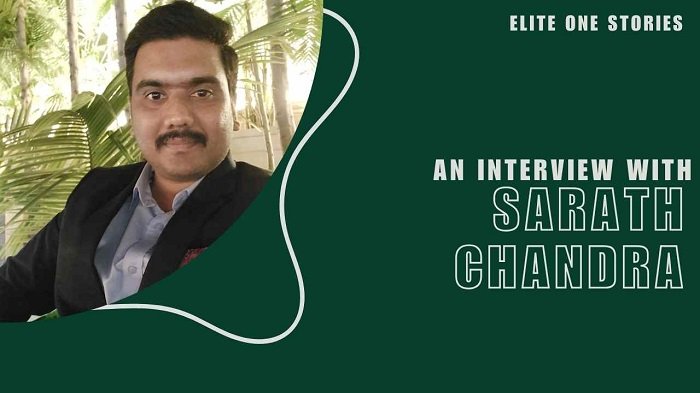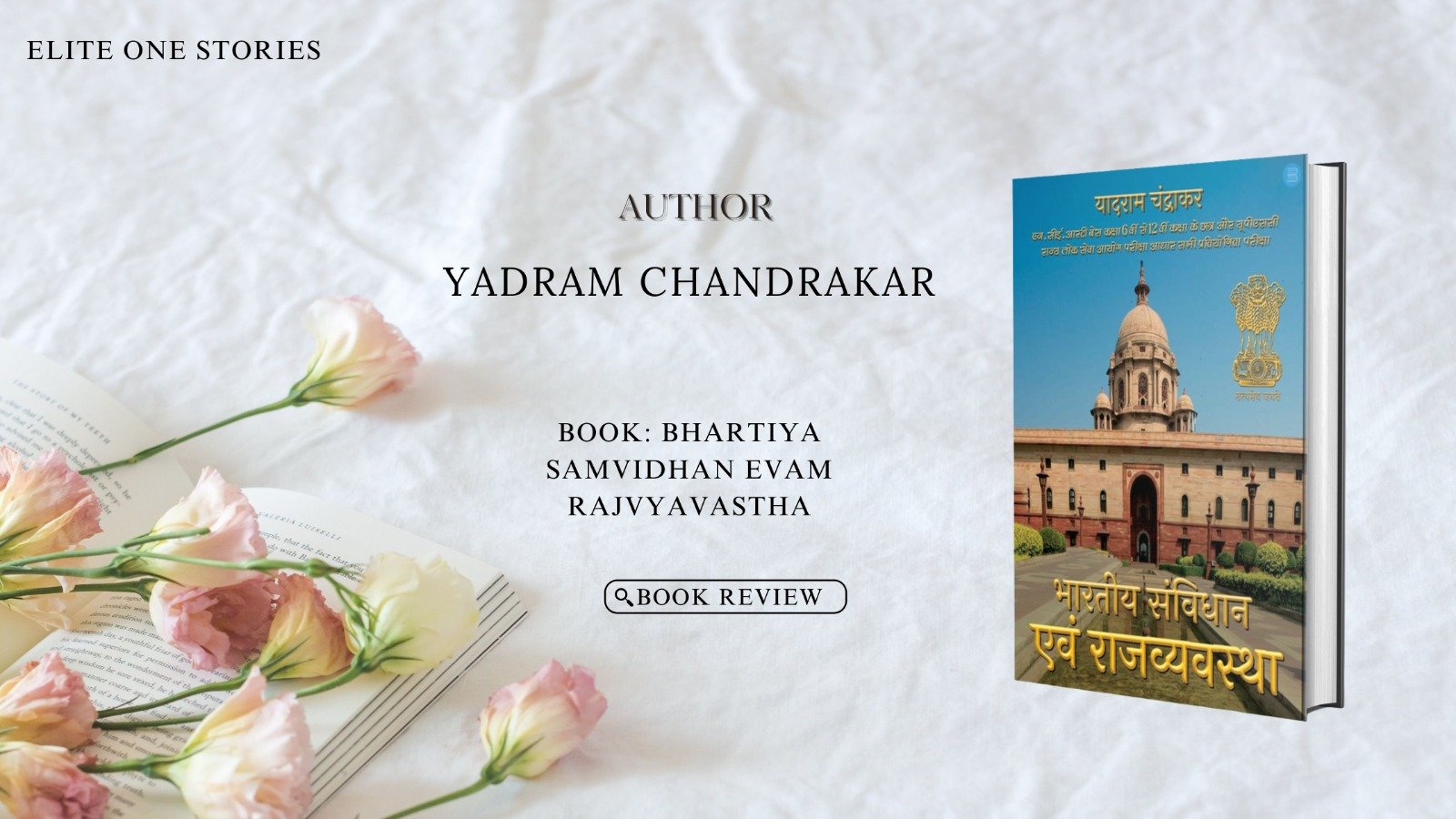Meet Sarath Chandra, a multifaceted talent whose professional acumen and artistic passion converge in compelling storytelling. With over 12 years of experience as a finance professional, Sarath brings a rare precision and depth to his writing—especially in the thrilling realms of corporate crime and mystery. His debut novel, Mishti In Shotti: The Kankurgachi Trail, is a riveting blend of suspense, cultural intrigue, and intellectual deduction, reflecting both his sharp analytical mind and his rich creative spirit.
Sarath holds a master’s degree in business administration with a specialization in finance and is currently pursuing a master’s in economics, while also adding to his credentials with a cost accountant certification and a diploma in forensic auditing. But behind the numbers lies an imaginative soul: a trained Telugu poet, an emerging voice in fiction, and a translator who straddles linguistic and cultural worlds with ease. He writes under multiple pen names, tailoring each voice to the medium—Sarachchandra Vangara for English fiction, Praagnasree for Telugu prose, and Sarachchandra for Telugu poetry.
His mission? To not only entertain but to provoke thought, spark conversations, and bridge the divide between logic and literature.
The Literature Times: Your debut novel dives deep into corporate fraud and ancient secrets. What inspired the story behind Mishti In Shotti: The Kankurgachi Trail?
Sarach chandra: The idea came straight from my own world—finance and auditing. As a finance manager, I often witness how numbers quietly reveal hidden stories. But I kept wondering—what if those stories weren’t just about money, but about buried secrets tied to culture and belief? I discussed this casually with colleagues and friends, especially my General Manager, Mrs. Geniya Banerjee, who encouraged me to shape this into a full story. That idea eventually became Mishti In Shotti—a world where spreadsheets collide with ancient symbols, and a quiet Bengali neighbourhood like Kankurgachi hides far more than it shows.
The Literature Times: How has your background as a finance professional influenced your writing, especially in constructing the plot and investigative details?
Sarach chandra: It influenced everything—the logic, structure, even the pace of the story. I approached the plot the way I approach an audit trail—every clue connects, every red herring serves a purpose. The investigative techniques and financial jargon aren’t just for drama—they reflect how real-world fraud actually unfolds, at least from what I’ve seen. Readers with a finance background will recognize the technical authenticity, while mystery lovers can enjoy the suspense without feeling lost.
The Literature Times: Ananya Chatterjee is a strong, analytical female protagonist. Was her character inspired by someone you know—or perhaps a reflection of your own mindset?
Sarach chandra: She’s inspired by several remarkable women I’ve worked with—sharp, unassuming, quietly resilient. But to be honest, my GM, Mrs. Banerjee, had a strong influence on shaping Ananya’s character. A Bengali auditor working in Hyderabad, representing both cultures with intellect and grace—that’s her. I also blended in my fascination for how the human mind works under pressure. But I’ll admit—Ananya’s braver than me. She asks questions even when it’s dangerous to do so.
The Literature Times: The novel blends financial crime with cultural and mystical elements. How did you balance realism with suspense and symbolism?
Sarach chandra: That balance was the most exciting challenge. I initially started with a straightforward, conventional plot. But a few pages in, I felt it was routine. I’ve always been drawn to spiritual mysticism more than any other genre, so naturally, my mind blended my professional world with my personal interests. I believe life isn’t just logic or mystery—it’s both. While the fraud investigation stays grounded in realistic techniques, the cultural and mystical layers—Durga Puja, temple politics, forgotten rituals—add atmosphere and symbolism. But I made sure the story never loses its grip on believability, even when it flirts with the unknown.
The Literature Times: Kolkata plays a vital role in your story—almost like a character itself. What drew you to set the narrative in this city, especially Kankurgachi?
Sarach chandra: Since my protagonist is Bengali, I wanted the story to have a distinct spiritual and cultural space. Kolkata was the obvious choice—it’s a city that holds nostalgia, complexity, and quiet defiance all at once. Honestly, I’m not a native of Kolkata and have only visited a few times. But after speaking to friends there and doing some research, Kankurgachi stood out. It’s understated yet layered—old families, forgotten temples, modern ambitions. It felt like the perfect place where secrets could hide in plain sight.
The Literature Times: You write in both English and Telugu, across poetry, prose, and fiction. How does switching languages and genres influence your creative process?
Sarach chandra: It keeps me grounded and versatile as a writer. Each language demands a different voice. English lets me explore suspense, structure, and mystery. Telugu taps into raw emotion and rhythm—especially in poetry. Switching between genres feels like moving from playing chess to composing music. It refreshes my creativity and prevents me from becoming repetitive.
The Literature Times: The book touches on themes of power, belief, and buried truths. What message or emotional impact do you hope readers walk away with?
Sarach chandra: That truth—whether hidden in numbers, buried in families, or concealed within belief systems—eventually surfaces. And that curiosity isn’t dangerous—it’s necessary. I want readers to experience that quiet thrill of peeling back layers and maybe, just maybe, question the surface of their own surroundings. Of course, above all, my intention is to entertain. There are enough social media pages giving life lessons—we don’t need a whole novel for that. (pun intended).
The Literature Times: How do you navigate the line between your technical, finance-based career and your creative pursuits in storytelling and poetry?
Sarach chandra: It’s like living two parallel lives. During the day, I deal with numbers, audits, and reports—the world of facts and figures. But writing lets me explore the why behind the facts—the human emotions, the untold stories, the hidden conflicts. Surprisingly, both worlds complement each other. My audit work adds precision and discipline to my writing, while my creative side adds empathy and perspective to my professional life.
The Literature Times: What can readers expect next from you—more thrillers, poetry, or something completely different?
Sarach chandra: A bit of everything. I’m currently working on my Telugu poetry collection, which has been long overdue. After that, I plan to introduce new characters—like Ananya Chatterjee and Basudev Chattopadhyay—and eventually, bring them together into my own “MIS Universe”, where finance sleuths team up to face both natural and supernatural forces. And yes, a sequel to Mishti In Shotti is also on the cards—this time, Ananya’s challenges will be even more personal and dangerous. It’s my way of staying rooted while taking creative risks.



